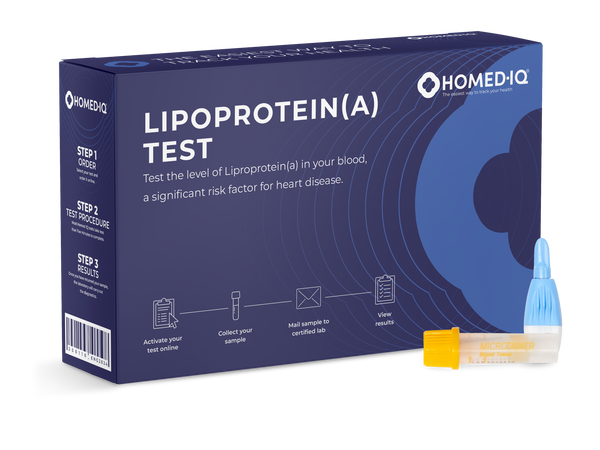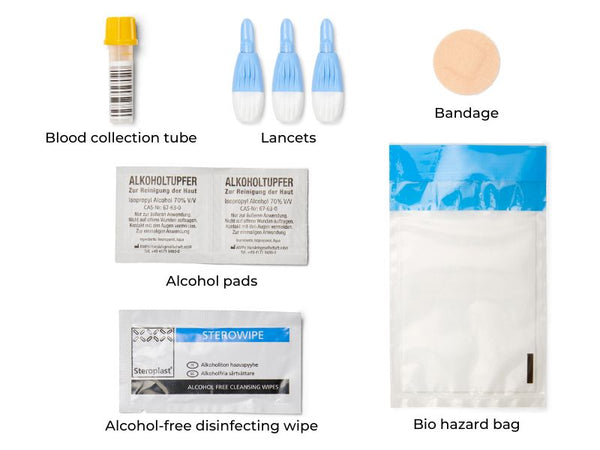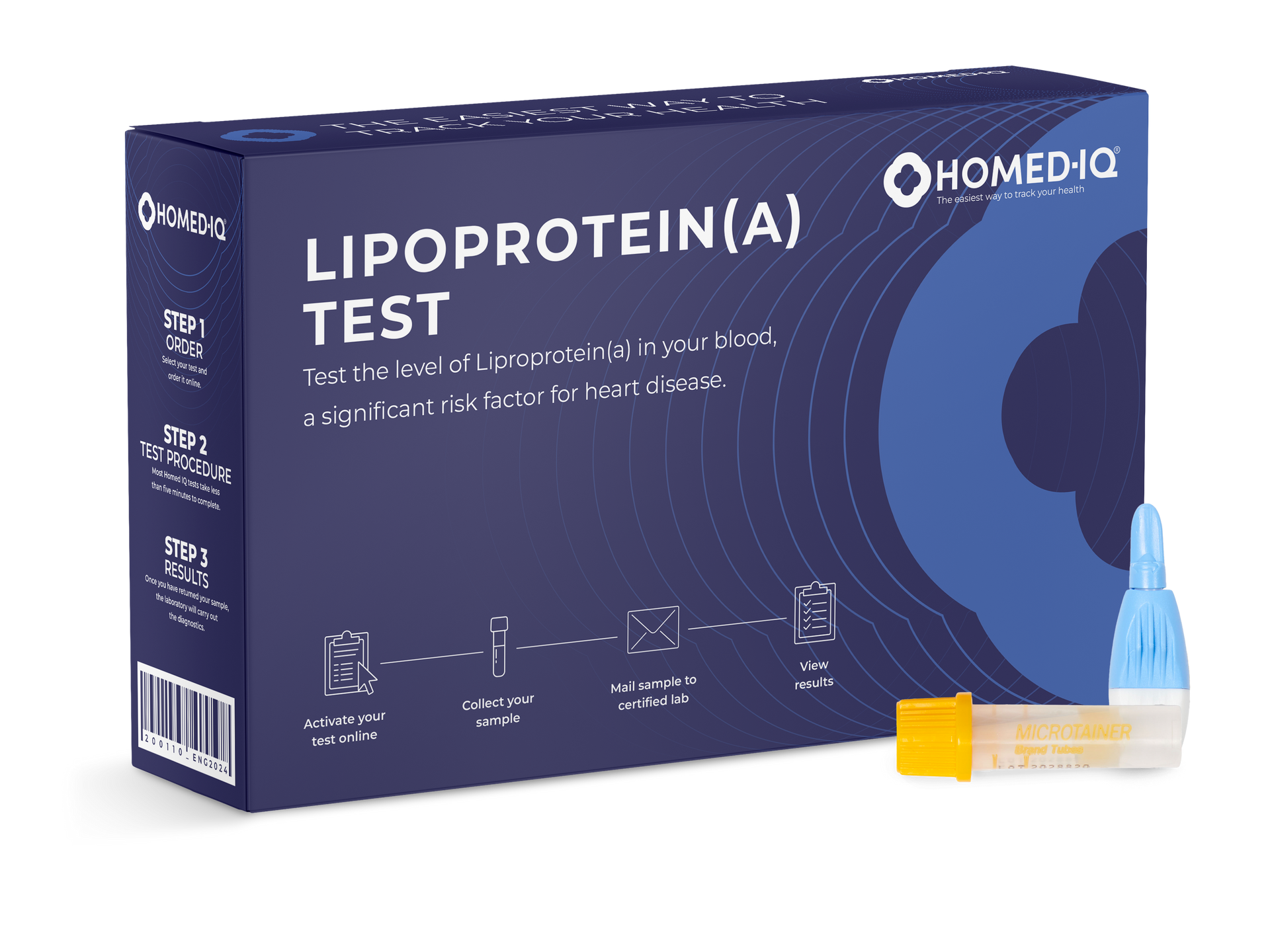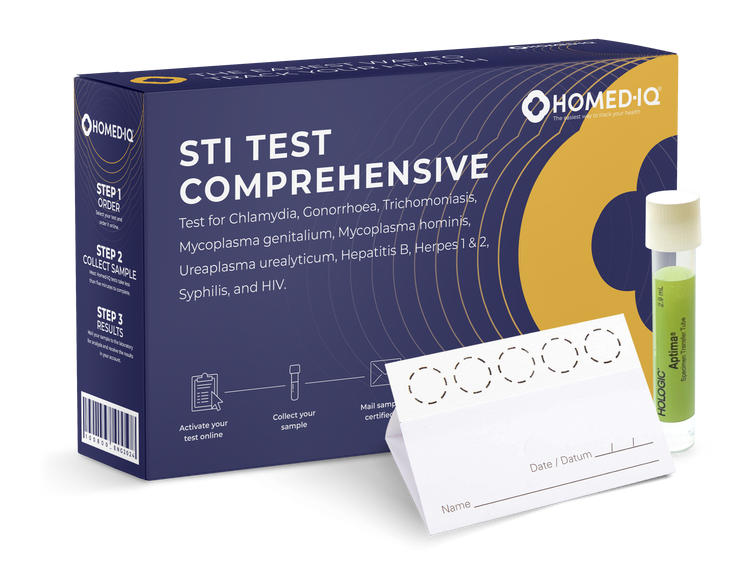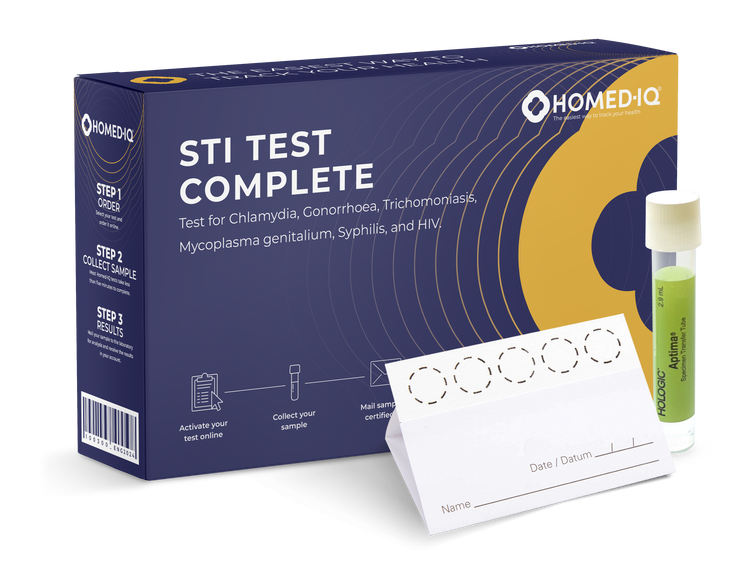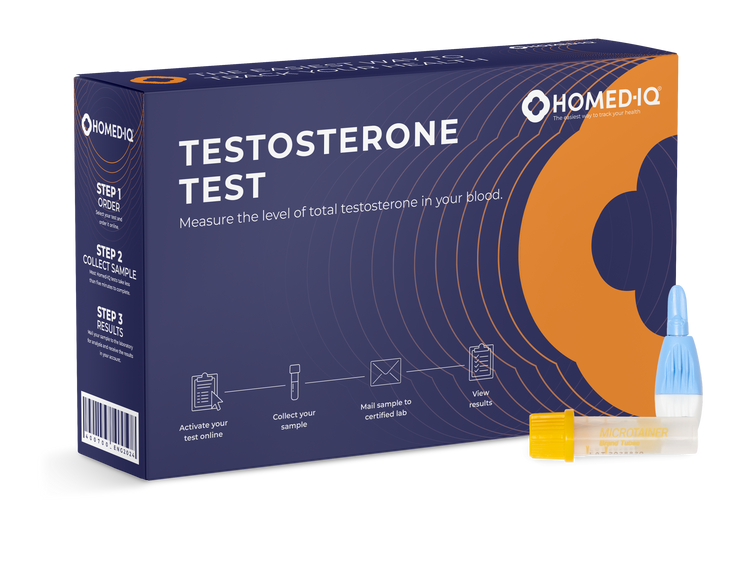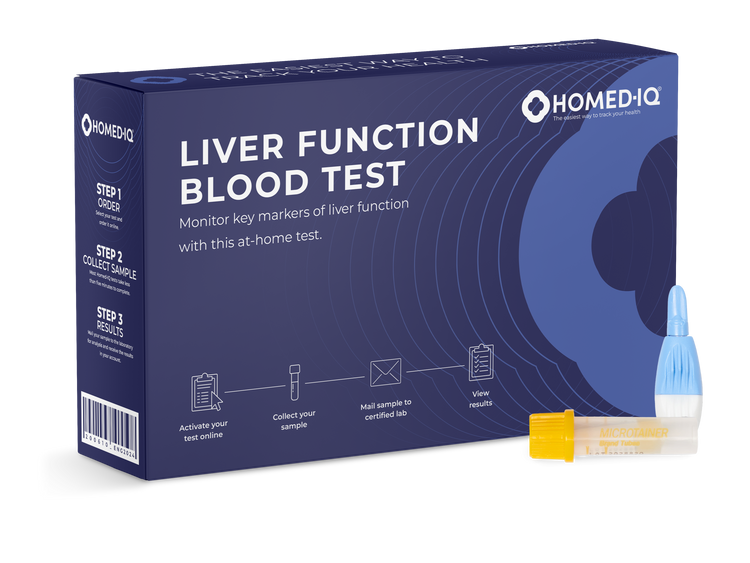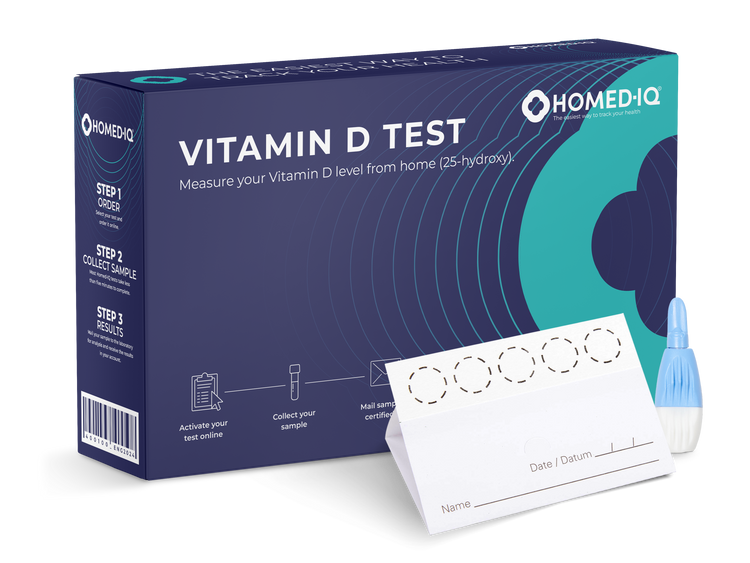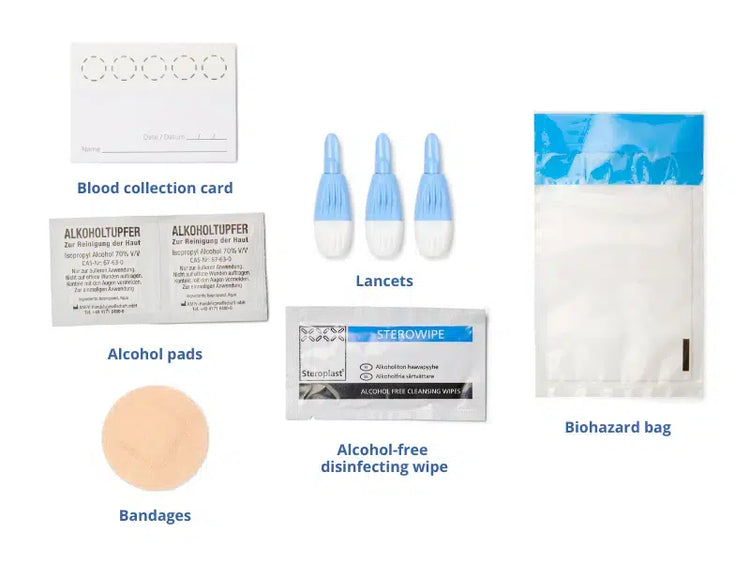Lipoprotein(a) Test
FREE SHIPPING
Approximately 1 in 4 people worldwide have elevated levels of Lipoprotein(a), or Lp(a)—a lesser-known but significant risk factor for heart disease. Unlike many other risk factors, Lp(a) levels are determined by genetics and cannot be modified through diet or lifestyle changes, making it a silent risk even in otherwise healthy individuals. This test measures the amount of Lp(a) in your blood- a cholesterol-carrying particle that can contribute to plaque buildup in the arteries. Use this simple at-home test to gain a clearer understanding of your heart disease risk.
Test mode:
Finger prick test
FAQs
Can I lower my Lp(a) level?
Is one test enough?
What should I do if my Lp(a) value is high?
Will my health insurer reimburse this test?
What is Lp(a)?
How does it work?
-
![Woman in professional cozy kitchen with Homed-IQ test kit]() 1
1Order your test
Fast and discrete letterbox delivery
-
![]() 2
2Activate & take your sample
Video instructions included
-
![]() 3
3Laboratory analysis
ISO - Certified lab network
-
![]() 4
4Receive your results
Easy access through mobile
